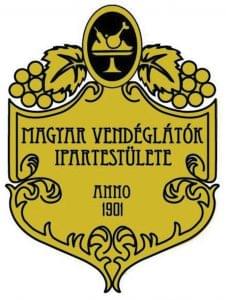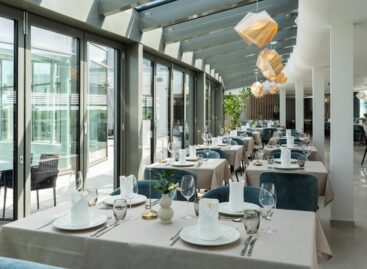We have asked NAV a couple of questions
In the middle of June the Guild of Hungarian Restaurateurs (MVI) and the National Tax and Customs Administration’s (NAV) organised a conference where those working in the hospitality sector had the chance to ask the tax authorities about practical problems. The event’s host was Dr Mihály Minya, the director of the National Tax and Customs Administration’s Pest County directorate. MVI members’ questions were answered in the form of four presentations.

Dr József Lambertus, the head of NAV’s information department talked about the question of VAT to be paid for restaurant services. He told that a preferential rate – 18 percent instead of 27 percent – applies when food and alcohol-free drinks made on the spot are served and consumed instantly (services that fall under the scope of SZJ number KSH 55.30.1). The activity must qualify as service providing, so product selling (e.g. selling lángos from a stand or dishes from a food truck) entails paying the normal VAT. Only those restaurants can qualify as 18-percent VAT places where hot meals are cooked on the spot, so catering and takeaway aren’t 18-percent VAT services either.
When a group of people eat food in a restaurant that was ordered in advance and the so-called Sunday brunch qualify for the preferential VAT. For ‘all you can eat’ the 27-percent VAT applies, just like for meals had at workplace cafeterias. What about tips? Well, if the sum appears in the so-called petty cash till and it isn’t separated from other sums in there, it must be considered as revenue for which a receipt must be issued. There are situations when suppliers can be paid from the cash register, but in this case a payment receipt must record that this happened.
Lajos Bakos, the head of NAV’s excise department III. was speaking about trading with excise goods. He called the attention of the audience to the fact that from 1 July there will be changes in the regulation. In the future retailers will be able to manage their excise-related affairs online. Mr Bakos revealed that from July alcoholic drink bottles which have already been opened won’t only be allowed to be stored in the serving area of the bar or restaurant, but also in other parts such as the storage room and the kitchen – 5 bottles smaller than 2l and 1 bottle that is 2l or bigger can be open.
Tibor Lengyel, the head of NAV’s operative control department brought a detailed list about what tax inspectors check during raids. He also talked about the problems with online cash registers used in bars or restaurants. He stressed the importance of keeping the cash register logbook. It is mandatory to have the online cash register revised and maintained regularly, minimum every 12 months. Dr Beáta Barta, deputy head of the same NAV department spoke about the many different statuses employees can have and called attention to the most important rules in connection with this. //
Related news
What does NAV’s new audit plan tell companies? – EY analysis
🎧 Hallgasd a cikket: Lejátszás Szünet Folytatás Leállítás Nyelv: Auto…
Read more >Related news
Lamb Days – Gastronomic Adventure is coming again on March 28–29!
🎧 Hallgasd a cikket: Lejátszás Szünet Folytatás Leállítás Nyelv: Auto…
Read more >Table reservations for National Restaurant Week start with unchanged prices
🎧 Hallgasd a cikket: Lejátszás Szünet Folytatás Leállítás Nyelv: Auto…
Read more >








